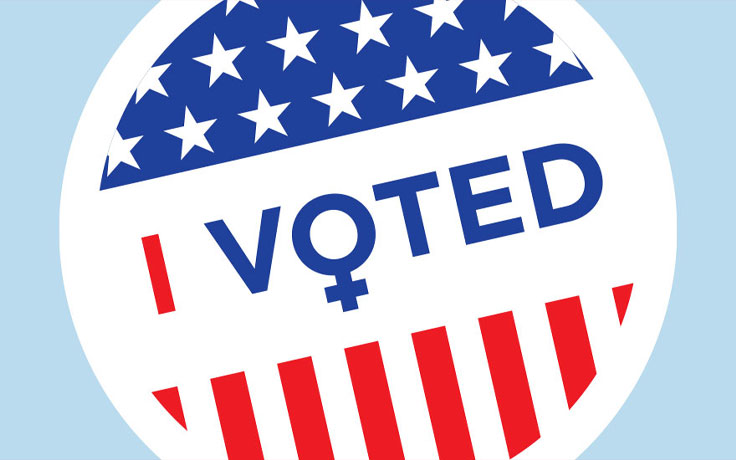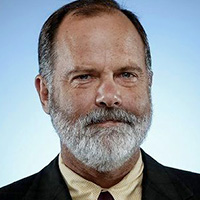In 1954, when the U.S. Supreme Court handed down its decision in Brown v. Board of Education, the political and constitutional impact of the court’s work was to hold that racial segregation in schools violated the principle that all Americans are entitled to equal protection of the law. But the court’s greater impact may have been in the weight it lent to civil rights as a moral cause, and this effect was the product not so much of the words or reasoning behind Brown as it was of the court’s unanimity.
The nine justices were all white men, but they came from varied regions and backgrounds. Three were from the Old South and its periphery – Alabama, Kentucky and Texas. One had only recently arrived from the governorship of California. They disagreed on many things, and a few of them despised some of the others. And yet, they spoke as one on May 17, 1954; they voted 9-0 to outlaw school segregation, and their unanimity conveyed their common conviction that such discrimination was not just illegal, but also immoral.
Chief Justice Earl Warren, the newest member of the court and late of California, understood the significance of acting as one. “When the word ‘unanimity’ was spoken,” he wrote of the day he read Brown from the bench, “a wave of emotion swept the room, no words or intentional movement, yet a distinct emotional manifestation that defies description.”
Joe Biden’s victory in the 2020 presidential campaign was a political triumph, but the reach of its moral message remains hard to assess. It was delivered not by a unanimous electorate. Hardly so. But it was delivered nonetheless – not so much with a “wave of emotion” as with mixed ones.
The view from Westwood
As leading UCLA political observers – researchers, professors and notable alumni – sized up the 2020 results, they agreed that Biden’s triumph was an unambiguous political victory: He stripped Donald Trump of Arizona and Georgia and rolled back Trump’s 2016 wins in the upper Midwest. Biden’s inauguration in January will end an extraordinarily aberrant four years of American history. But those same experts also stressed that it was not the ringing repudiation of Trump that so many Democrats – and more than a few Republicans – had so desperately wanted.
Indeed, Trump, who was impeached in January and then presided over a raging pandemic and the collapse of the American economy, nevertheless polled more votes in 2020 than in 2016, albeit as part of a much higher turnout. Biden, of course, did one better, outpolling Trump by more than five million votes. Voters also added to Republican numbers in the House.
Those results suggest a closely divided country, if not necessarily a deeply divided one, says Lynn Vavreck, a professor of political science at UCLA and one of the nation’s foremost elections experts. That division is not going away anytime soon, she adds.
“I don’t think there’s any resolving it,” she said. “You know, this is partisan politics. Two really homogenous parties [internally]. Well-financed. Well-organized. Fighting each other for their vision of what the country should look like. You can think of times in American history when the parties were not that different. But they have been different now for a couple of decades, and they’re going to continue, most likely, to be different.”
The result is that Biden’s election may or may not bring significant political change – across issues from health care to climate change to Supreme Court appointments to immigration policy – but the vote suggests a continuing struggle to heal the deep divisions that pit Americans against each other in so many aspects of the country’s political and cultural life.
A Nation at Odds, Still
Not only is the nation divided on issues, says Mark Peterson, professor of public policy, political science and law at the Luskin School of Public Affairs, but it is also at odds about such basic notions as the meaning of the country, the meaning of political institutions, the power of the presidency, the role of the media and the presence of racism. Those are not merely disputes over who should be president; they also are disagreements about national identity – what this country is.
The election, Peterson said, “has revealed a level of support or acceptance in this country on issues of racism, sexism and even civility that we didn’t know existed.”
These sentiments were shared by a range of experts drawn from the intellectual heart of UCLA and those with whom it engages politically. To a person, these political professionals and students of the science and history of national politics were reluctant to find great themes in the Biden victory. Yes, they said, this election offered an opportunity to launch new policy initiatives, to protect the Supreme Court and to re-engage America’s friends abroad. Perhaps most importantly, it ridded the nation of a divisive and exhausting president who tested institutional norms and public patience for four years. But also yes, it also represented a disappointing missed chance to heal divisions of the Trump era.
Watching the returns, “I didn’t find myself euphoric,” said Zev Yaroslavsky, the longtime Los Angeles County supervisor and director of the Los Angeles Initiative at UCLA’s Luskin School. “This election was won in the 9th inning. Nearly half the people of this country voted for a man who traffics in racism, traffics in bigotry and anti-immigrant rhetoric… How do we come [so] close to re-electing that man?”
Faced with the prospect of ongoing American discord – with Republicans in command of the Senate and Republican appointees a majority of the Supreme Court, while Democrats hold the White House and a bare majority of the House of Representatives – there is a risk of deadlock, and at a time of great urgency. The economy is gasping, and the nation is reeling from a global pandemic. Deadlock is a discouraging prospect, but there is a bright light: Some observers believe Biden is perfectly suited to address it.
Hope for Progress
In his victory speech on the night of Nov. 7, four days after the polls closed, Biden promised to unite Americans and deplored the vitriol so commonly employed by his predecessor, whom he barely mentioned. It was time, Biden said, to end the “grim era of demonization.” That struck a chord with many of this campaign’s close observers.
“Joe Biden is the right person at the right time to begin to unite us,” said former Los Angeles Mayor Antonio Villaraigosa, a UCLA alumnus and now partner and co-chairman of Mercury Public Affairs. “He’s a genuinely bi-partisan leader.”
That hopeful note was cautiously echoed by others, who see the potential for modest progress in various areas during a Biden era. The odds of change would increase, of course, if Democrats seize control of the Senate, either in Georgia’s two runoff elections in January or at the mid-term elections – but even in a divided government, there may be room for some agreement. UCLA experts cited issues such as health care, background checks for gun purchases, expanded protections for maternity leave, immigration reform and infrastructure investment as ones where Biden might be able to strike deals between House Democrats and Senate Republicans.
Abel Valenzuela, director of UCLA’s Institute for Research on Labor and Employment, said he had been skeptical, even before the election, that America would emerge with the nation united. “Winning the presidency is huge,” he said, but the challenges of division run deeply and are not likely to be healed by a single victory, even a momentous one.
Still, Valenzuela sees some hope for common ground, particularly as the country continues to struggle with COVID-19, which has killed 250,000 Americans. As the election approached, White House and Congressional negotiators failed to reach agreement on the next phase of an effort to bolster the economy and help those affected by the virus. With the voting over and Biden headed for the White House, Valenzuela said, he hoped negotiations would resume – and pay special heed to capital investments that might help the economy and address other national priorities as well.
Areas with Possibility
One potential target for investment is infrastructure, where Trump had promised to offer a national plan but never did. With millions of jobs lost because of the pandemic, Valenzuela and others suggested that the time was ripe for a bill that would invigorate public transportation, which could create jobs, stimulate the economy and resume the nation’s commitment to combatting climate change. Infrastructure investment, Valenzuela said, could bring about a “broadening of resources as part of pandemic recovery,” an idea that might have bipartisan appeal.
Similarly, Yaroslavsky and Valenzuela saw hope for an immigration bill that might protect many who are in the country illegally. Democrats have long favored such a bill, as have many Republicans, at least until Trump promised a border wall and falsely suggested that immigrants were disproportionately responsible for crime. Despite Trump’s efforts, there is broad, bipartisan support for protecting the immigration status of “Dreamers,” people brought to this country as children and would have benefited from the DREAM Act.
Trump attempted to end an Obama-era program that protected the Dreamers, but the Supreme Court overruled him, concluding that his administration had bungled the effort to abolish the program and had offered transparently false explanations for its actions. With Trump gone, Yaroslavsky said, Republicans might be reachable on that issue, which is of concern to America’s large and growing Latino population.
Prospects may be dimmer for another pressing national priority: health care. There again, Trump promised a package but never unveiled one. Instead, he fought the Affordable Care Act, known as Obamacare, at every turn. Paradoxically, as Professor Peterson pointed out, Trump’s attacks increased public support for Obamacare.
During the campaign, Biden struck a centrist Democratic position on the issue. He rejected a single-payer idea advanced by more liberal Democrats and countered with ideas for extending coverage options under Obamacare, notably by creating a public option for consumers who cannot not find insurance on the private market. Winning over a Republican Senate will sorely test Biden’s skill as a negotiator, and he might fail. What is easier to predict is that efforts to gut Obamacare, at least from the White House, will cease. That alone will give the health care program, the signature achievement of President Obama’s domestic record, four more years to solidify its place in American life.
One wildcard is what will become of Trump himself. Some have speculated that he may found or join a media outlet; others say he might leave the country. He seems unlikely to retire quietly into private life. His words and actions since Election Day suggest that he will carry grievances wherever he lands. And, Vavreck noted, he may continue to serve as a kind of cultural hero for Republicans and conservatives.
More than a few Democrats would love to see him hauled into the dock and prosecuted for crimes allegedly committed either during or before his presidency. Given Trump’s narrow escape from impeachment and in light of various investigations by state and federal authorities into his taxes and business dealings, the prospect of bringing him to justice is deeply appealing to some of his detractors.
But, said Villaraigosa, it would be a mistake for Biden to champion that course. It would undermine his chance to heal the nation and risk sabotaging an agenda that is far bigger and more important than Trump’s personal fate.
“Biden has always been someone who has reached out,” Villaraigosa said. “We need practical people right now. Biden is practical.”
What next?
Historical hypotheticals are tricky, but here’s one that seems relevant: What would have happened to racial segregation had the Supreme Court ruled as it did in Brown, but by a vote of 5-4?
As a matter of law, the result would have been the same. School segregation would have been held unconstitutional, and the work of civil rights would have continued with that assurance. Other cases would have made their way to the court. The justices would have grappled with them, but not as a single force. They would have been a divided body – determined to make progress, yet hampered by the division. Their debates would have required persuasion and patience, and the obligation on the chief justice would have been to persevere, to stay committed and to lead.
That’s the job ahead.

























